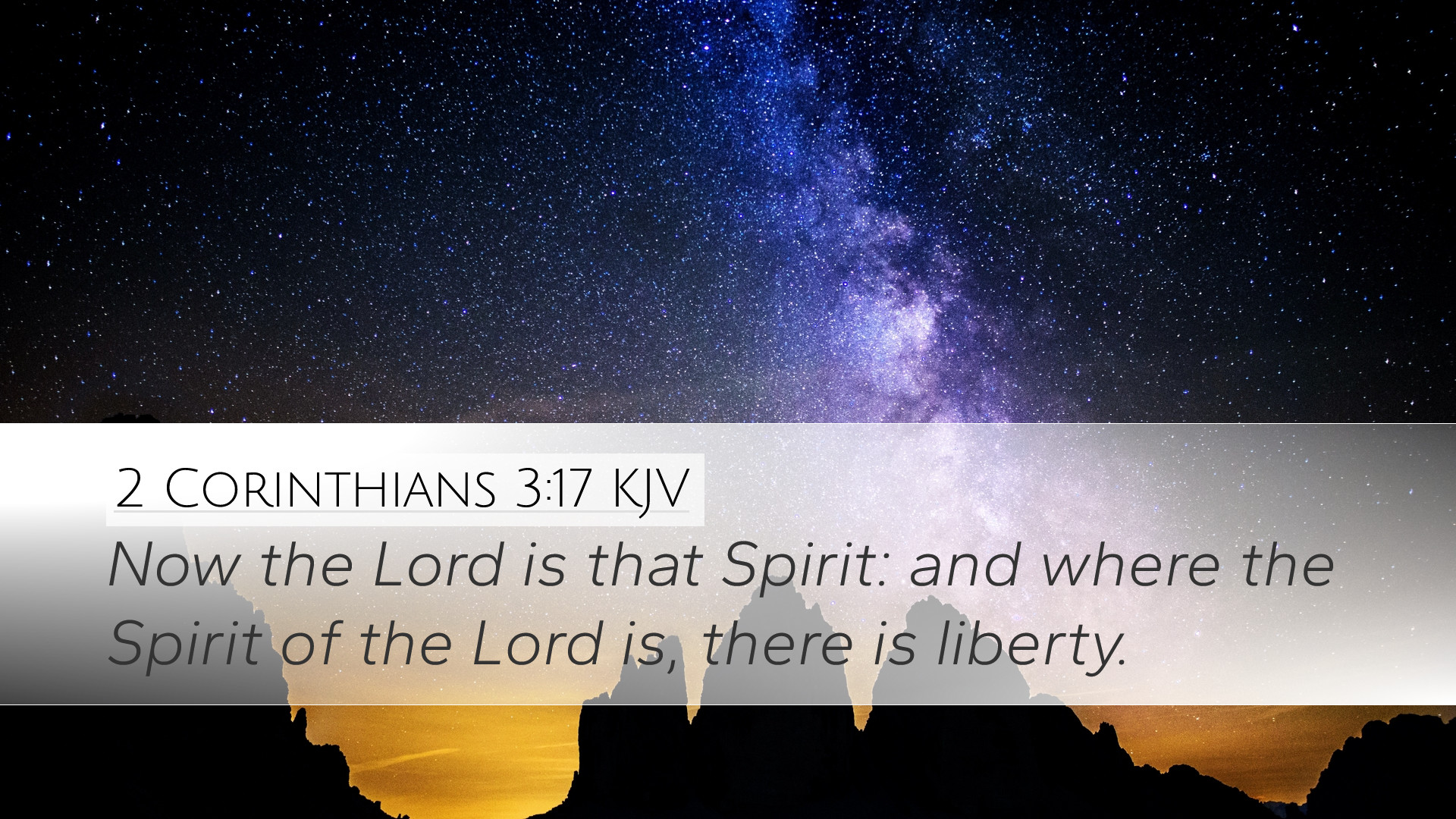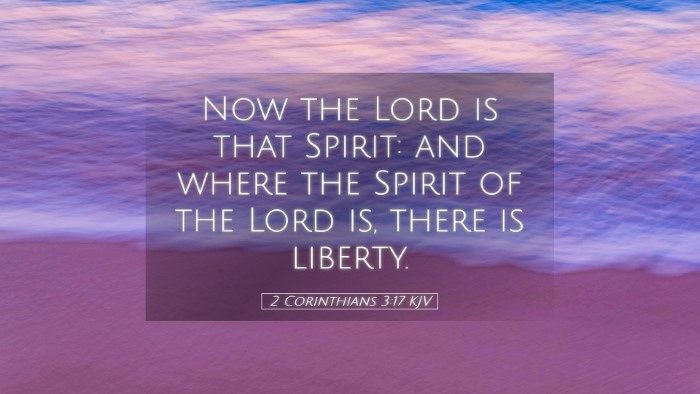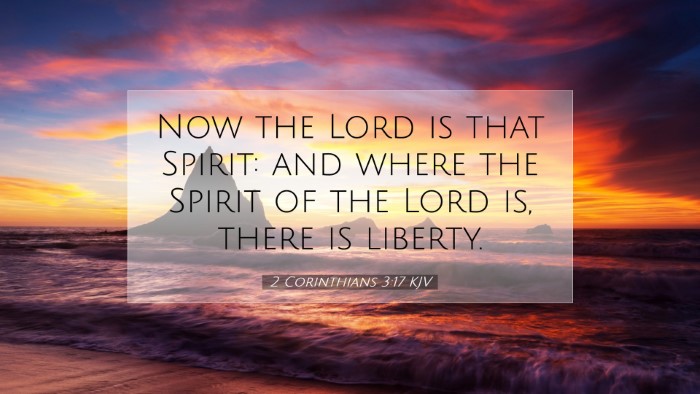Commentary on 2 Corinthians 3:17
Bible Verse: "Now the Lord is that Spirit: and where the Spirit of the Lord is, there is liberty."
Introduction
The verse under consideration, 2 Corinthians 3:17, encapsulates a profound theological truth about the role of the Holy Spirit in the believer's life and the nature of Christian freedom. This commentary synthesizes insights from various public domain sources to provide a deeper understanding of this significant scripture.
Contextual Background
In the Apostle Paul's writings to the Corinthians, particularly in the context of chapters 2 and 3, he contrasts the old covenant with the new covenant established through Jesus Christ. The old covenant, associated with the law and Moses, brought condemnation and was characterized by a fading glory. In contrast, the new covenant offers the transformative work of the Holy Spirit, marking a pivotal shift in how believers relate to God.
Exegesis of the Verse
Paul declares, "Now the Lord is that Spirit," linking Jesus Christ with the Holy Spirit. This connection is indicative of the Trinitarian nature of God and highlights the presence and activity of the Spirit in the life of believers. According to Matthew Henry, this reflects the idea that Christ, through His Spirit, is both the giver and the sustainer of spiritual life.
The Lord as Spirit
The phrase "the Lord is that Spirit" can be understood in light of several significant interpretations. Albert Barnes notes that Paul emphasizes the divinity of the Spirit and His role in imparting liberty. This indicates a direct involvement of Christ in the believer's life through the Spirit, establishing that spiritual freedom comes not from adherence to the law but through an intimate relationship with God.
The Essence of Liberty
“Where the Spirit of the Lord is, there is liberty” serves as a declaration of the transformative power of the Holy Spirit. Adam Clarke elaborates on this liberty as a liberation from sin, death, and the constraints of the law. This liberty allows believers to serve God with joy and peace, unencumbered by the guilt and fear that the law can impose.
Theological Implications
The implications of this verse are profound for the Christian faith. It points to the nature of growth in grace and the continual work of the Spirit in sanctification. Matthew Henry emphasizes that this liberty is not an excuse for licentiousness but a call to live according to the Spirit, which enables believers to fulfill the righteousness of the law voluntarily and joyfully.
The Connection of Spirit and Liberty
In the biblical context, liberty is not merely political or social; it is primarily spiritual. Albert Barnes states that the Spirit enlightens, guides, and empowers believers, allowing them to experience a newness of life. This liberty is characterized by the ability to approach God with confidence and to live out the implications of the Gospel without fear of condemnation.
Practical Applications
For pastors, students, and theologians, the implications of 2 Corinthians 3:17 are multifaceted:
- Embrace the Work of the Spirit: Recognize the active role of the Holy Spirit in both personal life and corporate worship. Understanding His presence leads to empowerment and liberty.
- Teach on Freedom in Christ: Focus on the liberty Christians have in Christ as opposed to a life bound by the law. This can uplift and inspire congregations, emphasizing a relational rather than legalistic faith.
- Encourage Spiritual Growth: Foster environments where believers can grow in their faith experience and understand the active role of the Spirit in sanctification.
- Counter Legalism: Address any tendencies within church communities towards legalism with teachings that emphasize grace and the indwelling Spirit’s power for liberation.
Conclusion
2 Corinthians 3:17 serves as a reminder of the integral role of the Holy Spirit in the life of a believer and the profound freedom that comes from knowing Christ. The verse teaches that liberty is not just the absence of constraints but the powerful presence of God’s Spirit leading, guiding, and transforming believers into the image of Christ. Such insights drawn from the commentaries of Matthew Henry, Albert Barnes, and Adam Clarke provide essential nourishment for the spiritual journey of all who seek to live in the fullness of the freedom given by the Spirit of the Lord.


